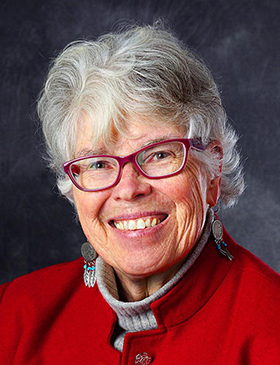PASSING ON THE TORCH….
by Alice L. Laffey, SSD
Pontifical Biblical Institute
Seven of the nine persons whom Pope Francis recently appointed to the Pontifical Biblical Commission have academic connections to the Gregorian University schools. Paul Bere, S.J. whom we highlighted in our last newsletter, Rev. Federico Giuntoli, and Henry Pattarumadathil, S.J. all completed their doctorates in Sacred Scripture at the Pontifical Biblical Institute and are currently teaching at the Biblicum. Father Bere’s publications embrace both the Old and New Testaments, with articles on passages in Genesis, Joshua, 1 Samuel, Ruth, Mark, Luke and Romans. His most recent work concentrates on the interpretation of the Scriptures in the contemporary African context. Father Giuntoli, a diocesan priest born in Montecatini Terme in central Italy, has focused his research and publications on the first five books of the Old Testament, that is, the Pentateuch, while Father Pattarumadathil’s research and publications center on the gospel of Matthew. In addition to writing in the traditional languages of scholarship, he has also published in Malayalam, a language spoken in southwest of India.
The Revs. Andres Maria Garcia Serrano and Marcin Kowalski, both diocesan priests and both New Testament scholars, also completed their doctorates at the Biblicum. Father Garcia Serrano currently teaches at San Damaso Ecclesiastical University in Madrid, while Father Kowalski teaches in the Institute of Biblical Studies of the Faculty of Theology at the John Paul II Catholic University in Lublin, Poland. Dr. Maria Armida Nicolaci and Rev. Blazej Strba completed their Licentiate degrees at the Biblicum, and then went on to complete doctorates in Sicily and Slovakia, respectively. Dr. Nicolaci currently teaches Scripture as a member of the Pontifical Theological Faculty of St. John the Evangelist in Palermo while Father Strba teaches at Comenius University in Batislava, Badin.
These new additions to the 20 person Biblical Commission bring the total number of members who claim some connection to the Gregorian University schools to 17 as alumni/ae with five serving as either Biblicum or Gregorian faculty. Sister Nuria Calduch Benanges, M.N. and Ms. Bruna Costacurt, both Old Testament scholars with doctorates from the Biblicum, teach biblical theology at the Greg. Consistent with Vatican II’s Decree on Revelation that draws together the Church’s Scripture and Tradition, all theology students take courses in Scripture. The Greg is able to draw on former Biblicum students to teach Scripture.
While recent publicity has celebrated Pope Francis’ appointment of women to the Commission, and most recently, the appointment of two additional women to the Commission bringing their total number to five, one-fourth of the total, it bears noting that four of the five women were trained at the Jesuit schools in Rome.
Pietro Bovati, S.J., the outgoing Secretary of the Biblical Commission is a Biblicum alumnus who went on to serve there as a faculty member, then as the school’s academic dean and finally, as its vice-rector. Sister Nuria Calduch Benanges, M.N. has been named to replace him as the Commission’s Secretary.
Pope Leo XIII founded the Pontifical Biblical Commission in 1902 with three goals in mind: to promote biblical studies among Catholics; to counter erroneous interpretations of Scripture, and to study and illuminate controversial and emerging interpretations. Two years later, in 1904, Pope Pius X granted the Commission the power to confer academic degrees (the licentiate and doctorate) in Biblical Studies. Though the Commission was not responsible for providing the education of the candidates for these degrees, it tested their acquired knowledge and competence. When the degree was awarded, its recipient became qualified to teach Scripture in seminaries throughout the world.
At the time the Commission was created it was comprised of three Cardinals and 12 consultors who met bimonthly. As I write this article, I am reminded of the passage in Acts 8:27-31 where Philip asks an Ethiopian eunuch if he understands the passage from Isaiah he is reading. The man answers Philip, “How can I understand unless someone explains it to me?” How could the knowledge and competence of the Scriptures that the Biblical Commission was requiring of degree applicants be acquired unless someone taught them? Enter the Pontifical Biblical Institute. Five years after Pius X granted the Commission the power to confer academic degrees, he established, in 1909, the Pontifical Biblical Institute, entrusting to the Jesuits the biblical education of, in particular, future seminary faculty.
While the composition and structure of the Biblical Commission changed (1971)–it is now comprised of 20 biblical scholars, who constitute a consultative body linked to the Vatican’s Congregation for the Doctrine of the Faith–it retains much of its original purpose. It is still entrusted with promoting biblical studies, countering error, and illuminating emerging interpretations, and it can still test candidates in the field of biblical studies and award degrees. It is not a requirement, nor has it ever been, that members of the Biblical Commission have studied at the Biblicum, but it is likely that most will have studied there. And while there is a small number to whom the Commission awards degrees who have not studied at the PIB, the Biblicum remains the central academic institution in the Church for the study of the Bible.
To pursue its goals the Biblical Commission has produced several documents. Its most recent is, “What Is Man?” (Ps.8:5). “The Interpretation of the Bible in the Church” (1989) confirms the value of modern methods of biblical interpretation while also affirming the importance of faith in the interpretive process.
The composition of the PBC has changed not only from cardinals to biblical scholars but also in its global representation. Not surprisingly, during the twentieth century, many students from all over the world have done biblical studies in Rome and are now prepared not only to teach in their local seminaries and in ecclesiastical universities, including the Biblicum and the Gregorian, but also to become respected members of the Pontifical Biblical Commission. Members of the current PBC with academic connection to the Jesuit schools in Rome, at least as students, are from Burkina Faso, Spain (3), Italy (3), France, Brazil, England, the United States, Poland, Columbia, Hungary, the Congo, India and Slovakia. The Commission’s members, including those most recently appointed to it, as well as faculty and students of the Jesuit schools in Rome, represent a truly universal Church.



